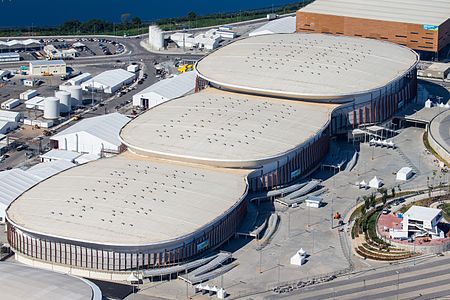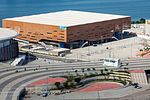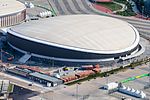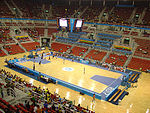Carioca Arena 2
Barra Olympic ParkBrazilian sports venue stubsIndoor arenas in BrazilOlympic judo venuesOlympic wrestling venues ... and 3 more
Sports venues completed in 2016Sports venues in Rio de Janeiro (city)Venues of the 2016 Summer Olympics

Carioca Arena 2 (Portuguese: Arena Carioca 2) is an indoor stadium in Barra da Tijuca in the west zone of Rio de Janeiro, Brazil. The venue hosted judo and wrestling at the 2016 Summer Olympics as well as boccia at the 2016 Summer Paralympics. As with a number of other venues in the Barra Olympic Park, Carioca Arena 2 will be transformed after the games to become part of the Olympic Training Centre.
Excerpt from the Wikipedia article Carioca Arena 2 (License: CC BY-SA 3.0, Authors, Images).Carioca Arena 2
Avenida Embaixador Abelardo Bueno, Rio de Janeiro Barra da Tijuca
Geographical coordinates (GPS) Address External links Nearby Places Show on map
Geographical coordinates (GPS)
| Latitude | Longitude |
|---|---|
| N -22.9777 ° | E -43.3924 ° |
Address
Arena Carioca 2
Avenida Embaixador Abelardo Bueno
22775-040 Rio de Janeiro, Barra da Tijuca
Rio de Janeiro, Brazil
Open on Google Maps










